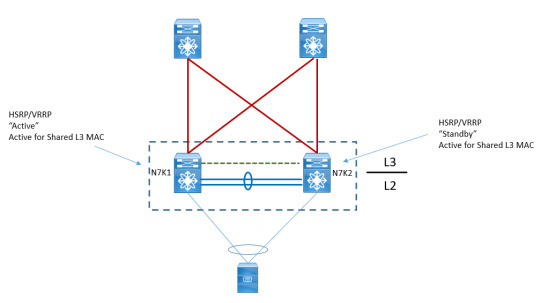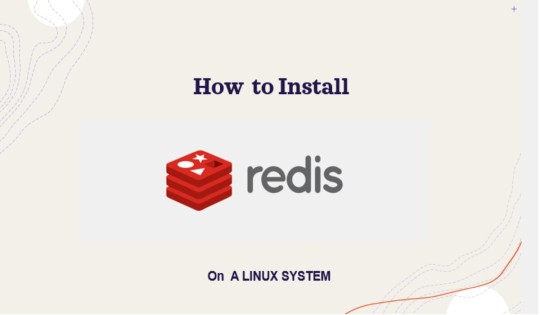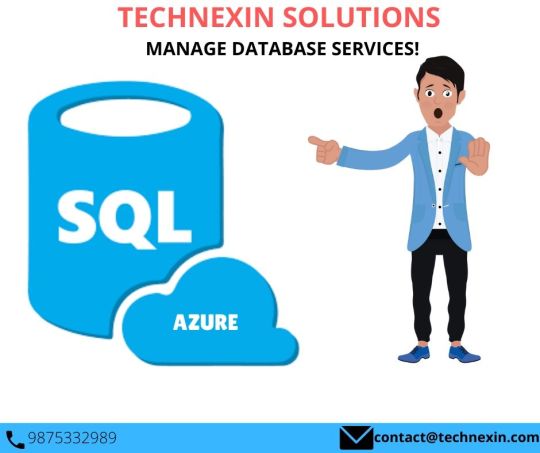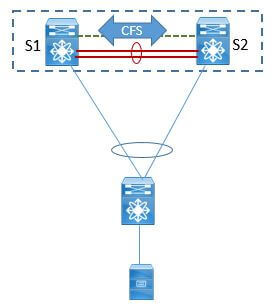#HighAvailability
Explore tagged Tumblr posts
Text
Why Cloud Load Balancers Are Critical for Managing Peak Traffic
In today’s digital landscape, businesses are increasingly relying on cloud services to deliver seamless and reliable user experiences. One of the most critical components of this infrastructure is the Cloud Load Balancer. This powerful tool is essential for managing peak traffic, ensuring that your applications remain responsive and available even during high-demand periods. Let’s dive deep into how load balancing can help businesses avoid bottlenecks and downtime and why Cloudtopiaas is the ideal platform for implementing these solutions.
Understanding Cloud Load Balancers
A cloud Load Balancer is a service that distributes incoming network traffic across multiple servers or instances. This distribution ensures that no single server becomes a bottleneck, thereby enhancing the overall performance and reliability of your application. By intelligently routing requests, load balancers can significantly reduce the load on individual servers, prevent overloading, and improve the user experience.

Key Benefits of Cloud Load Balancers
Improved performance and reliability:
Even Distribution: Load balancers distribute traffic evenly across multiple servers, ensuring that no single server is overwhelmed. This helps maintain consistent performance and reduces the risk of server crashes.
Redundancy: If a server fails, the load balancer can automatically redirect traffic to other healthy servers, minimizing downtime and ensuring continuous service availability. This is particularly important during peak traffic periods when any downtime can lead to significant losses.
Scalability:
Elastic Scaling: Cloud load balancers can dynamically add or remove servers based on real-time traffic patterns. This feature allows your application to scale seamlessly, ensuring that you can handle sudden spikes in traffic without manual intervention.
Cost Efficiency: By scaling resources only when needed, you can optimize costs and avoid over-provisioning. This is especially beneficial for businesses with fluctuating traffic patterns.
Security:
DDoS Protection: Load balancers can help mitigate Distributed Denial of Service (DDoS) attacks by filtering out malicious traffic and distributing legitimate requests. This ensures that your application remains accessible and secure.
SSL/TLS Offloading: Load balancers can handle SSL/TLS encryption and decryption, offloading this resource-intensive task from your application servers. This improves performance and reduces the load on your servers.
Session Persistence:
Sticky Sessions: Load balancers can ensure that users are consistently directed to the same server throughout their session. This is crucial for applications that require session state, such as e-commerce platforms and web applications that manage user sessions.
Advanced Traffic Management
Health Checks: Load balancers can perform regular health checks on servers to ensure they are functioning correctly. If a server fails a health check, it can be automatically removed from the pool, ensuring that only healthy servers handle traffic.
Content-Based Routing: Some load balancers can route traffic based on the content of the request, such as URL, header, or cookie information. This allows for more granular control over traffic distribution and can improve performance and user experience.
Implementing Cloud Load Balancers with Cloudtopiaas
At Cloudtopiaas, we understand the importance of a robust and efficient load balancing solution. Our platform offers a range of load balancing services that are designed to meet the needs of businesses of all sizes. Whether you are a startup looking to scale rapidly or an enterprise managing high-traffic applications, Cloudtopiaas provides the tools and expertise to ensure your applications perform at their best.
Easy Setup and Management:
Interactive Interface: Our user-friendly interface makes it simple to set up and manage load balancers, even for non-technical users. You can configure load balancing rules, add or remove servers, and monitor performance with just a few clicks.
Automated Configuration: Cloudtopiaas offers automated configuration tools that can help you set up load balancers quickly and efficiently, reducing the time and effort required for manual setup.
Advanced Features:
Health Checks: Our load balancers perform regular health checks to ensure that servers are functioning correctly. If a server fails a health check, it is automatically removed from the pool, ensuring that only healthy servers handle traffic.
Content-Based Routing: Cloudtopiaa load balancers can route traffic based on the content of the request, such as URL, header, or cookie information. This allows for more granular control over traffic distribution and can improve performance and user experience.
SSL/TLS Offloading: Our load balancers can handle SSL/TLS encryption and decryption, offloading this resource-intensive task from your application servers. This improves performance and reduces the load on your servers.
24/7 Support:
Dedicated Support Team: Our dedicated support team is available around the clock to help you troubleshoot issues and ensure smooth operations. Whether you need help with setup, configuration, or performance tuning, our experts are here to assist you.
Scalability and flexibility:
Dynamic Scaling: Cloudtopiaa load balancers can dynamically add or remove servers based on real-time traffic patterns. This ensures that your application can handle sudden spikes in traffic without manual intervention.
Multi-Region Support: Our load balancers support multi-region configurations, allowing you to distribute traffic across multiple geographic locations. This improves performance by reducing latency and enhancing user experience.
Real-World Example
Let’s consider a real-world example to illustrate the benefits of cloud load balancers. Imagine you run an e-commerce platform that experiences a significant surge in traffic during the holiday season. Without a load balancer, your servers might struggle to handle the increased load, leading to slow page loads, server crashes, and a poor user experience.
By implementing a Cloudtopiaas load balancer, you can distribute the traffic evenly across multiple servers, ensuring that no single server becomes a bottleneck. The load balancer can also perform health checks to ensure that only healthy servers handle traffic, and it can dynamically scale resources to handle the increased load. This ensures that your e-commerce platform remains responsive and available, even during peak traffic periods.
Conclusion
In conclusion, cloud load balancers are indispensable for managing peak traffic and ensuring that your applications remain responsive and reliable. By leveraging the powerful load balancing services offered by Cloudtopiaas, you can avoid bottlenecks, reduce downtime, and provide a seamless user experience. Whether you are just starting out or looking to optimize your existing infrastructure, Cloudtopiaas is your partner in achieving cloud excellence.
Join us at Cloudtopiaas to experience the benefits of advanced load balancing and take your business to the next level. Post your thoughts and experiences on Cloudtopiaa and share your journey with the community.
#CloudLoadBalancing#TrafficManagement#ScalabilityMatters#HighAvailability#ServerPerformance#PeakTrafficHandling#DDoSProtection#WebsiteReliability#AutoScalin#NetworkOptimization
0 notes
Text

Understand the concepts of Hot Standby Router Protocol (HSRP) for network redundancy and reliability, ensuring seamless failover solutions. https://www.dclessons.com/hsrp-concepts
0 notes
Text
New Trick – Organizing Prisma Models with the MERN Stack – Prisma #16
In this blog, we will explore “New Trick – Organizing Prisma Models with the MERN Stack”. Here, you will learn how to split and organize Prisma models, enums & types from the prisma.schema file into multiple files and import predefined data from JSON files. Let’s dive in and check it out:
#prisma#mongodb#reactjs#react#mern#mernstack#nosql#javascript#js#nodejs#npm#prismaorm#orm#database#redundancy#highavailability#replica#replicaset#developers#developer#software#softwaredeveloper#programming#programminglanguage#javascriptprogramming#advancedjavascript#techtrick#trick
0 notes
Text
Building Scalable Web Applications: Tips and Techniques

In the ever-evolving world of web development, scalability has become a crucial factor for the success of online businesses. A scalable web application can handle increased loads without compromising performance, ensuring a smooth user experience and maintaining the integrity of the service. Whether you're developing a new application or looking to enhance an existing one, implementing the right strategies from the outset can make all the difference. Here are some tips and techniques to help you build scalable web applications.
1. Design with Scalability in Mind
The foundation of a scalable web application starts with its architecture. Design your application with the assumption that it will grow. This means considering how each component can scale independently and how new components can be added seamlessly. Use a modular approach to make it easier to scale specific parts of your application without affecting others.
2. Choose the Right Technology Stack
Selecting the appropriate technology stack is critical for scalability. Look for technologies that are known for their performance and scalability. For example, Node.js is a popular choice for building scalable network applications due to its non-blocking I/O model. Similarly, containerization technologies like Docker and orchestration tools like Kubernetes can greatly simplify the process of scaling microservices.
3. Embrace Microservices
Microservices architecture allows you to break down your application into smaller, independent services that can be scaled individually. This approach offers several advantages, including the ability to make changes to one service without affecting others and deploying services independently. It also makes it easier to use the best technology for each service, tailored to its specific needs.
4. Optimize Database Performance
Databases are often the bottleneck in web applications. To ensure scalability, optimize your database queries, use caching mechanisms, and consider sharding or replication. NoSQL databases like MongoDB or Cassandra can be more suitable for high-scalability needs compared to traditional relational databases. Always analyze your data access patterns to choose the right database technology.
5. Implement Caching
Caching is a powerful technique to reduce the load on your servers and improve response times. By storing frequently accessed data in a fast in-memory cache like Redis or Memcached, you can serve content more quickly and reduce the number of trips to the database. Be strategic about what data you cache and for how long, to ensure data consistency and freshness.
6. Use Content Delivery Networks (CDNs)
For applications that serve a global audience, latency can be a significant issue. CDNs can help by storing static content (like images, CSS, and JavaScript files) on servers located around the world. This ensures that users can access these resources from a server that is geographically closer to them, reducing load times and improving performance.
7. Monitor and Analyze Performance
Building a scalable web application is an ongoing process. Continuously monitor your application's performance and analyze user behavior to identify bottlenecks and areas for improvement. Tools like Google Analytics, New Relic, and Application Performance Monitoring (APM) solutions can provide valuable insights into how your application is performing and where it can be optimized.
8. Plan for Horizontal and Vertical Scaling
There are two primary methods of scaling: horizontal (scaling out) and vertical (scaling up). Horizontal scaling involves adding more machines to distribute the load, while vertical scaling means upgrading the existing hardware. Both methods have their pros and cons, and the best approach often depends on your specific needs and budget.
9. Automate Deployment and Scaling
Automation is key to managing scalable web applications efficiently. Use automated deployment tools like Jenkins or GitHub Actions to streamline the deployment process. For scaling, leverage cloud services that offer auto-scaling features, which can automatically adjust the number of servers based on demand.
10. Keep Learning and Stay Updated
The field of web development is constantly evolving, with new technologies and best practices emerging regularly. Stay informed about the latest trends in scalability and be ready to adapt your strategies as needed.
Conclusion Building scalable web applications is a complex task that requires careful planning and execution. By following these tips and techniques, you can create applications that are robust, efficient, and capable of handling growth. Remember, scalability is not just about technology; it's also about the processes and practices that ensure your application can evolve and thrive in a rapidly changing digital landscape
#WebDevelopment#Scalability#SoftwareEngineering#PerformanceOptimization#HighAvailability#CloudComputing#LoadBalancing#Microservices#DistributedSystems#DevOps#WebArchitecture#BestPractices#WebApplicationDevelopment#BackendDevelopment#FrontendDevelopment
0 notes
Text
What are the advantages/benefits of DevOps (AWS Dev)?
The advantages of DevOps in AWS (Amazon Web Services) include:
Faster Time to Market: Streamlined processes enable rapid deployment of code changes, leading to quicker delivery of new features and updates.
Scalability: AWS offers scalable infrastructure, allowing DevOps teams to easily accommodate fluctuations in workload and scale resources as needed.
Cost Efficiency: DevOps practices on AWS optimize resource utilization, minimizing infrastructure costs and maximizing ROI.
Automation: AWS provides a range of automation tools, enabling automation of deployment, testing, and infrastructure management tasks, reducing manual efforts and human errors.
High Availability: AWS offers robust services for fault tolerance and high availability, ensuring that applications remain accessible and operational even during failures.
Security: AWS provides a wide array of security features and compliance certifications, allowing DevOps teams to build and deploy secure applications and infrastructure.
Flexibility: AWS offers a wide range of services and deployment options, providing flexibility to DevOps teams to choose the right tools and technologies for their specific requirements.
Collaboration: DevOps practices promote collaboration between development and operations teams, fostering a culture of shared responsibility and continuous improvement on AWS.
#DevOps#AWS#CloudEngineering#Automation#Scalability#CostEfficiency#HighAvailability#Security#Collaboration#Flexibility#magistersign#onlinetraining#support#cannada#usa
0 notes
Photo

(via How to install Redis on Linux System)
0 notes
Text
Proxmox Remove Node from Cluster Including Ceph
Proxmox Remove Node from Cluster Including Ceph #proxmox #proxmoxcluster #ceph #proxmoxceph #clusterrole #highavailability #virtualization #homelab #homeserver #vhtforums #pve #pvecluster #virtualizationhowto
If you are learning Proxmox and using it in your home lab environment, one of the things you will likely want to do is build a Proxmox cluster. Doing this provides high availability for your virtual machines and containers. If you are building clusters, you may need to remove nodes from cluster configurations in Proxmox. In a home lab, you may have power considerations, want less noise, or…

View On WordPress
0 notes
Text
New post out.
Especially useful for Managed Service Providers looking after cloud accounts for multilple clients.
aws #azure #gcp #cloudsecurity #cloudcomputing #security #devops #DevSecOps #developer #serverless #lambda #awscloud #engineer #cloud #amazonwebservices #amazonweb #googlecloud #microsoft #bigdata #technology #automation #devopsengineer #diagrams #PaaS #SaaS #FaaS #cloudtechnology #cloudsolutions #hybridcloud #multicloud #publiccloud #cloudcompliance #cybersecurity #cloudmonitoring #cloudautomation #cloudgovernance #edgecomputing #containerization #docker #kubernetes #itops #CTO #CFO #IaaS #AI #ML #DataScience #CloudNative #CloudMigration #CloudManagement #DigitalTransformation #Microservices #CloudServices #CloudStrategy #IoT #ServerlessArchitecture #CloudStorage #OpenStack #DeepLearning #DataCente #ITManagement #Scalability #HighAvailability #CostOptimization #CloudCostManagement
0 notes
Text
Kubernetes HighAvailability Deployment with Pod Anti-Affinity
We do aware main role of Kubernetes is providing High availability for our microservice applications. There is a greater number of options and best practices we should follow to keep our application high available. Today will see one more option how to keep the application high available in public cloud which contains multiple zones. With a Kubernetes Deployment we can achieve high availability…

View On WordPress
0 notes
Photo

Hey, are you looking for microsoft azure SQL services that runs on a cloud computing platform? We are here at Technexin Solutions manages database services take care of scalability, backup, and high availability of the database. More details contacts us: Email: [email protected] Call: 9875332989 Website: https://technexin.com
#technexin#technexinsolutions#manages#databaseservices#scalability#backup#highavailability#DB#microsoftazure#azure#sql#online#server#cloudcomputing#database
0 notes
Text


Master the consistency check and failover scenarios in vPC configurations. Our detailed tutorial helps you ensure seamless failover and maintain network stability and reliability. https://www.dclessons.com/vpc-consistency-check-and-failover-scenarios
#vPC#Networking#vPCConsistencyCheck#vPCFailover#CiscoNetworking#VirtualPortChannel#NetworkRedundancy#HighAvailability#FailoverScenarios
0 notes
Text
Best Way – MongoDB Replica Set for Prisma Queries Running – Prisma #15
In this blog, we will explore how to resolve the issue of “MongoDB Replica Set for Prisma queries running”. This error commonly occurs after setting up MongoDB in Prisma ORM and running database queries. Let’s dive in and check it out now
#prisma#mongodb#reactjs#react#mern#mernstack#nosql#javascript#js#nodejs#npm#prismaorm#orm#database#redundancy#highavailability#replica#replicaset#developers#developer#software#softwaredeveloper#programming#programminglanguage#javascriptprogramming#advancedjavascript
0 notes
Photo

New Year Veritas and Symantec Authorized Training Discount
0 notes
Text
How to resolve Citrix ADC HA pair issue with remote node change from UP to DOWN state
Case In Citrix ADC HA pair (2 nodes), the primary node shows the following error in the system log. This behavior is observed with Citrix ADC VPX running on Hyper-V. Remote node : UP -> DOWN You may also see the following error in the system log: No HA heartbeats (Last received: ; Missed 15 heartbeats) Solution You will need to re-configure the Hyper-V load balancing mode from Dynamic or Address Hash to HyperV Port mode. In Hyper-V environments with Citrix ADC VPX virtual machines in HA mode, Citrix recommends the HyperV port L/B mode, as discussed in detail in the following article: https://support.citrix.com/article/CTX224494. Carry out the following steps in your Hyper-V cluster: Drain Hyper-V Host (maintenance mode)Stop the Cluster Service with Powershell: Stop-Service ClussvcConfigure Load Balancing in with Powershell: Set-NetLbfoTeam –Name "" –LoadBalancingAlgorithm HyperVPortStart the Cluster Service with Powershell: Start-Service Clussvc Sources https://discussions.citrix.com/topic/387686-remote-node-up-and-down/ https://discussions.citrix.com/topic/369235-ha-problems-missed-15-heartbeats/ https://support.citrix.com/article/CTX224494 Read the full article
0 notes
Text
First 10 Steps I do on Proxmox in 2024
First 10 Steps I do on Proxmox in 2024 #proxmox #proxmoxve #proxmoxupdates #ceph #clustering #highavailability #proxmoxcluster #proxmoxvlan #letsencrypt #proxmoxsecurity #proxmoxmonitoring #virtualization #virtualizationhowto #vhtforums #homelab
Ok, there is no denying that Proxmox is picking up steam everywhere. Before, we said that Proxmox was really a home lab option. But now, with VMware going the way of other Broadcom purchases, many are giving Proxmox and other solutions a serious look. Getting Proxmox set up and off to a good start involves some basic configuration. Let me share the first 10 steps I do on Proxmox in 2024 to give…

View On WordPress
0 notes